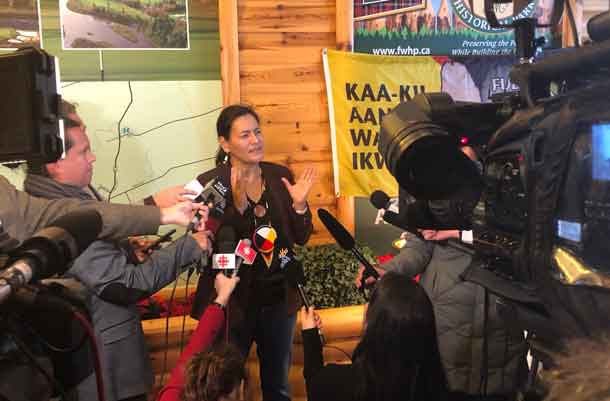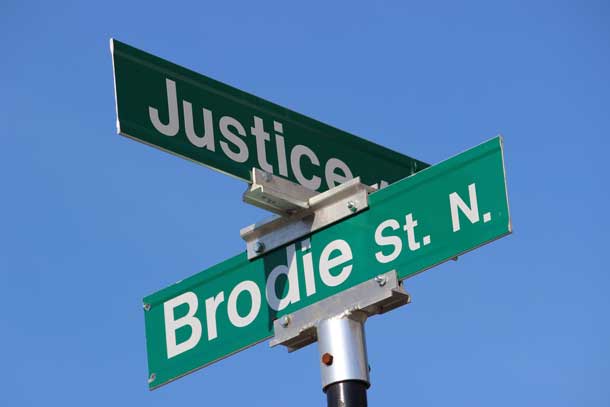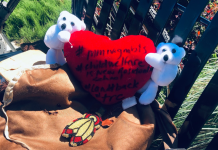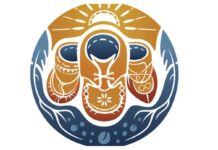
OTTAWA – At a briefing today in Ottawa, federal Minister Bennett has granted an extension of six months to the National Inquiry into Missing and Murdered Indigenous Women and Girls. Commissioners sought a two-year extension and additional funding as well. The move by the federal Liberals has at least one of the commissioners taking time to reflect on her future with the Inquiry.
Commissioner Michèle Audette in a statement says, “I have received the government decision on the National Inquiry’s extension request. I am currently inhabited by a feeling of incomprehension and deep disappointment. My thoughts are with the family members, survivors of violence and the Spirit of the lost loved ones as the Government of Canada is failing them once again today.
“I will allow myself the next few weeks to reflect, to analyze the decision, to express my personal opinion and to validate my future participation in the work of the National Inquiry”.
Over the timeline of the National Inquiry, there have been concerns raised by families, by the Assembly of First Nations, and critics of the National Inquiry.
The scope of the work and the deep emotional toll on staff and Commissioners have been very hard. It is ground never covered before.
Backgrounder
Ending violence against Indigenous women and girls is a top priority for the Government of Canada.
On June 5, 2018, Minister Carolyn Bennett and senior officials from Crown-Indigenous Relations and Northern Affairs Canada, Public Safety, Indigenous Services Canada, Status of Women Canada and Justice Canada held a media briefing to provide an update on the National Inquiry into Missing and Murdered Indigenous Women and Girls’ request for an extension and Interim Report.
Status
The Government of Canada dedicated $53.8 million to the Inquiry and provided terms of reference and a timeline of two years, September 1, 2016, to December 31, 2018, to complete its important work. The terms of reference directed the Inquiry to deliver an interim report on November 1, 2017, and a final report on November 1, 2018.
The Inquiry has travelled across the country gathering information, hearing from families, communities, experts, and institutions. To date, it has held 15 Community Hearings with survivors and family members; Statement Gatherings in other communities; two Expert and Knowledge Keepers Hearings, one on Indigenous Law and Decolonizing Perspectives and one on the Human Rights Framework; and, one Institutional Hearing on Government Services. Another Expert Hearing on Racism and an Institutional Hearing on Police Policies and Practices have been scheduled by the National Inquiry to take place before the end of June 2018.
The Inquiry, as mandated, released an interim report with recommendations on November 1, 2017, in Our Women and Girls Are Sacred.
The Path Forward
The Government of Canada announced on June 5, 2018, that the Commission will be granted an extension and the Inquiry will have until April 30, 2019, to submit its final report, instead of the initial date of November 1, 2018. The extension to submit the report means the Commissioners can choose to extend the time, up to December 2018, to hear from additional families and survivors, further examine institutional practices and policies, and undertake the research necessary to inform their recommendations on the systemic causes of all forms of violence against Indigenous women and girls in Canada. The Commission also has another two months, until June 30, 2019, to wind down its work.
This approach acknowledges that there are more survivors and family members who want to share their experiences while underscoring the urgency that this Government places on seeing the Commission deliver concrete recommendations to address systemic and institutional issues to help keep Indigenous women and girls safe. It also provides opportunity for the Inquiry’s final recommendations to be informed by further expert or institutional hearings and research, if the Commission chooses to do so.
The federal Terms of reference for the Inquiry will be amended to reflect the new timelines for the Inquiry to deliver its final report and wind-down its operations. The appointments of the Commissioners leading the Inquiry will also be extended.
The Government of Canada will continue its support of the Inquiry through the administrative working group led by the Privy Council Office to ensure that the Commission receives the help it needs with administrative issues.
The Government of Canada recognizes that funding—including operational and salary costs—may be required to enable the Inquiry to continue beyond the original December 31, 2018, conclusion date. The Government will work with the Inquiry to determine its budgetary requirements.
Interim Recommendations
The recommendations of the Inquiry’s interim report identified changes that could be implemented to improve the functioning of the Inquiry and better address the needs of survivors and family members going forward. We are taking action in these areas:
- Increasing health support and victim services by:
- providing $21.3 million to complement the health supports provided by the Inquiry. This will allow the expansion of services to include all survivors, family members and those affected by the issue of missing and murdered Indigenous women and girls; improve their access to health support services; and increase the timeframe during which health support services will be available up to 12 months after the Inquiry’s new end date (i.e. June 30, 2020).
- providing an additional $5.42 million in 2019-20 to extend the timeframe for the two Department of Justice Canada initiatives – Family Information Liaison Units and funding for community-based organizations to support families beyond the life of the Inquiry.
- Through Status of Women Canada, the Government will establish a commemoration fund by providing $10 million over two years to honour the lives and legacies of missing and murdered Indigenous women and girls and LGBTQ2S individuals. It will support Indigenous organizations at the national, regional and local levels – including women’s organizations – to develop and implement commemorative events. As the Inquiry noted in the interim report, public commemoration is a powerful way to honour truths, support healing, create awareness, and to advance reconciliation.
- The Government of Canada also recognizes the importance of addressing gaps in services to Indigenous peoples throughout the criminal justice system and enhancing law enforcement capabilities. We are taking action by funding a review of police policies and practices in regards to their relations with the Indigenous peoples they serve. Up to $1.25 million over two years will be provided to organizations with expertise in law enforcement and policing to lead the review.
- A $9.6 million over five years investment to support the Royal Canadian Mounted Police’s new National Investigative Standards and Practices Unit. Members of this unit provide national oversight to major RCMP investigations. A significant proportion of this oversight will focus on missing and murdered Indigenous women and girls investigations.
Points of Progress since the launch of the National Inquiry into Missing and Murdered Indigenous Women and Girls (officially launched on August 3, 2016)
The Government of Canada continues to engage with Indigenous peoples and take concrete actions to eliminate violence towards women and girls and protect future generations. For example:
- Crown-Indigenous Relations and Northern Affairs (CIRNA) continues to ensure Indigenous women’s voices are heard through the Recognition of Rights Framework. CIRNA is undertaking women-specific engagement sessions to enable women to share their views on how to effectively dismantle colonial, patriarchal structures, and how we can support the empowerment of Indigenous women through the Framework.
- Indigenous Services Canada continues to invest in housing, education and the transformative reform of child and family services with a focus on prevention, ensuring children are connected to their language and culture and keeping families together. The Inquiry’s interim report recognizes strong links between the child welfare system and violence against Indigenous women and girls in Canada and identified a need for responsive, accountable, and culturally appropriate child and family services.
- Indigenous Services Canada remains committed to improving the safety and security of Indigenous women, children and families, and has been expanding the network of shelters and transition houses for those fleeing domestic violence. In 2017-2018 the Family Violence Prevention Program collaborated with the Canada Mortgage Housing Corporation to build and operate new on-reserve shelters. Indigenous Services Canada also provided core funding to the National Aboriginal Circle Against Family Violence (NACAFV) to act as a national coordinator by supporting shelters and their staff through training forums, prevention activities, research and collaboration with key partners. In 2017-2018 NACAFV took action to ensure that the findings of the latest shelter needs assessments are addressed. Indigenous Services Canada continues to work alongside federal partners as part of the whole-of-government approach to implementing the Strategy to Prevent and Address Gender-Based Violence.
- Status of Women Canada engages with Indigenous organizations through It’s Time: Canada’s Strategy to Prevent and Address Gender-Based Violence, to put forward a range of actions to help address violence against Indigenous women and girls, including: new program funding to develop promising practices to address gaps in support for at-risk populations, including Indigenous women survivors and their communities; and working with Indigenous organizations to undertake research initiatives. Through It’s Time, Canada is also investing in cultural competency training for federal law enforcement officers.
- The Department of Justice Canada is undertaking a broad review of the criminal justice system. In Spring 2018, the Government of Canada introduced Bill C-75 that, once passed, will strengthen the criminal justice system’s response to intimate partner violence through various measures, including imposing a reverse onus at bail for the accused, clarifying that strangulation, choking and suffocation is an elevated form of assault, and allowing for the possibility of seeking higher maximum penalty for repeat offenders. Bill C-75 is also anticipated to streamline the conduct of preliminary inquiries, as well as reduce the number of cases in which some witnesses would have to testify twice, once at the hearing and once at trial, thereby reducing the “re-victimization” of victims and witnesses, and protecting them from long, drawn-out proceedings.
- Through the Indigenous Justice Program, the Department of Justice Canada also supports restorative justice approaches that hold offenders responsible for their actions, while providing all parties – victims, offenders, and communities – an opportunity to address their needs in the aftermath of a crime.
- Public Safety Canada continues to improve community safety for Indigenous peoples. For example, Public Safety Canada’s Aboriginal Community Safety Planning Initiative supports Indigenous communities in the development of customized Community Safety Plans.
- The Royal Canadian Mounted Police (RCMP) continues to actively investigate unresolved cases of missing and murdered Indigenous women. It has also increased its efforts nationally to raise awareness about the issue of violence against women and girls through violence prevention and public awareness initiatives. A comprehensive summary of these initiatives can be found at Working Together to End Violence Against Indigenous Women and Girls National Scan of RCMP Initiatives May 2017.
- In the spirit of reconciliation and in support of the Truth and Reconciliation Commission’s call to action #41, the RCMP established a dedicated Inquiry Team at National Headquarters to provide its full cooperation and participation to the National Inquiry into Missing and Murdered Indigenous Women and Girls. The Inquiry Team, supported by all RCMP divisions, conducts file reviews, participates in Family Information Liaison Unit meetings with families, supports appropriate sharing of investigative files to the National Inquiry, conducts analysis, and is preparing the RCMP participate as requested by the Inquiry.
Facts & Figures
- Budget 2018 provided $1.449 billion over six years for First Nations Child and Families Services. The Government also invested an additional $634.8 million over 5 years (and ongoing) through Budget 2016.
- Through investments made in Budget 2017 and Budget 2018, the Government proposes dedicated funding to support the successful implementation of each of the distinctions-based housing strategies, including:
- An additional $600 million over three years to support housing on reserve as part of a 10-year First Nations Housing Strategy that is being developed with First Nations.
- $400 million over 10 years to support an Inuit-led housing plan in the Inuit regions of Nunavik, Nunatsiavut, and Inuvialuit. This is in addition to the $240 million over 10 years announced in Budget 2017 to support housing in Nunavut, where additional funding was provided for Inuit housing.
- $500 million over 10 years to support the Métis Nation’s housing strategy.
- The Government announced $14.51 million over five years, beginning in 2018–19, and $2.89 million per year ongoing, to establish a National Human Trafficking Hotline to increase the identification and protection of victims of human trafficking. The National Hotline will include a national referral system to connect victims to social services and law enforcement.
- Budget 2016 announced, beginning in 2016-2017, up to $33.6 million over five years, and up to $8.3 million in ongoing additional funding to better support shelters serving victims of family violence in First Nations communities.
- Under the Family Violence Prevention Program, Indigenous Services Canada, in collaboration with the Canada Mortgage Housing Corporation, invested in the construction of five additional shelters, anticipated to be completed by March 31, 2019. These are in addition to the existing 41 shelters currently serving women and children living on-reserve across the country.
- Budget 2017 announced $100.9 million over five years and $22.5 million ongoing for It’s Time: Canada’s Strategy to Prevent and Address Gender-Based Violence, while Budget 2018 proposes to provide an additional $86 million over five years, starting in 2018-19, and $20 million per year ongoing, to expand the Strategy. Budget 2018 also proposes $5.5 million over five years to address gender-based violence at post-secondary institutions across the country.
- As part of It’s Time: Canada’s Strategy to Prevent and Address Gender-Based Violence, the RCMP received funding to design and develop cultural competency and trauma-informed gender-based violence training that will be offered to all RCMP employees starting 2019-20. Through this training, there will be an improved capacity across the RCMP to effectively respond to gender-based violence in a gender and culturally sensitive manner, including responding to violence against Indigenous women and girls. All training material will be examined using the Gender-based Analysis Plus (GBA+) tool, developed by Status of Women Canada.
- In January 2018, Public Safety Canada announced a federal investment of up to $291.2 million over five years, starting in 2018–2019, for policing in First Nation and Inuit communities. This funding will be dedicated to communities currently served under the First Nations Policing Program.
- Budget 2018 proposes to provide $327.6 million over five years, starting in 2018-19, and $100 million per year ongoing, for a multi-pronged approach to tackle gun and gang activity in Canada. Indigenous organizations, among others, will have access to funding to help build capacity to address the issue of guns and gangs through education, outreach, and research. Also, Indigenous organizations were amongst partners and stakeholders who participated in the Summit on Gun and Gang Violence on March 7, 2018.
- Budget 2014 announced, beginning in 2015, $8.6 million over five years for the Aboriginal Community Safety Development Contribution Program.





